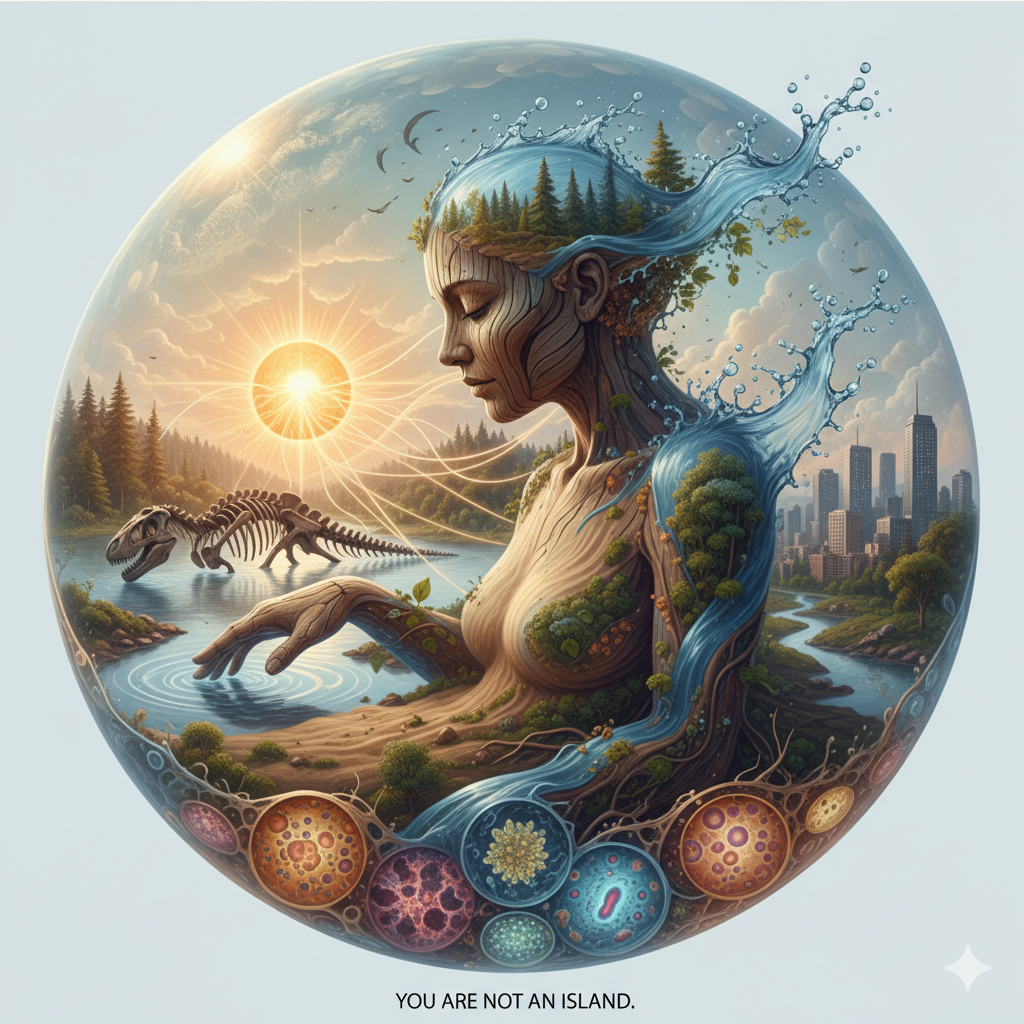You Aren't an Island: The Deep Connection Between You and Everything Else

TL;DR: The individual self is an illusion; we are all constantly changing, interconnected parts of one massive, recycled, planet-wide organism.
Let’s Dig In
Forget the idea that you’re a fixed, isolated island of self. You’re more like a river.
You start with the old philosophical puzzle called the Ship of Theseus: if you replace every single plank of a famous ship over time, is it still the original ship? That’s you. Your body isn’t static; it’s a constant construction project. Your skin cells are new every few weeks, and most of the atoms that make up your entire structure are cycled out over a decade. The average age of all the cells in your body is about seven to ten years—meaning you are literally a different collection of parts than you were ten years ago.
But the shift is bigger than your own body. Where do the old pieces go? Back into the system. You are constantly inhaling the shed skin and dander of other people, animals, and the world around you. You drink water that was once part of a dinosaur. The air you breathe is shared by every living thing on the planet. This isn’t a metaphor; it’s a massive, closed-loop recycling program.
This continuous flow means that the Western idea of the rugged, self-made individual standing alone is simply an incomplete map of reality. We are less like separate machines and more like fleas on the back of a shared dog—completely dependent on the health of the host and each other.
If your existence is fundamentally an interconnected process, then all those artificial walls we build—based on class, wealth, or location—are nothing short of foolish. Recognizing this universal connection, especially our unbreakable tie to the Earth and its resources, isn’t just about being nice to the environment. It’s about self-preservation. To harm the planet or one another is, quite literally, to harm a part of your own extended organism.
Go Deeper:
The Ship of Theseus Paradox - Wikipedia How Fast the Human Body Replaces Its Cells - Quest Diagnostics Stanford Encyclopedia of Philosophy: Personal Identity